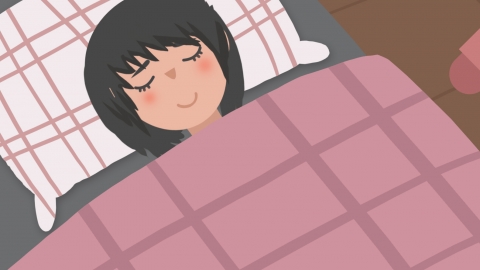What are the times when gallstone attacks occur?
Gallstone attacks may occur within 1–2 hours after meals, during nighttime sleep, after consuming greasy foods, during emotional fluctuations, or when physically fatigued. These episodes are often related to gallbladder contractions that stimulate the movement of stones. The triggers and symptom manifestations vary depending on the timing of the attack. If sudden severe abdominal pain, fever, or jaundice occurs, prompt medical attention at a hepatobiliary surgery department is recommended.
1. Within 1–2 hours after meals: After eating, the gallbladder contracts to release bile for digestion. Stones are prone to shifting during these contractions, potentially blocking the cystic duct and causing pain. Particularly after heavy meals, gallbladder contractions are stronger, increasing the likelihood of an attack. Pain is typically localized in the right upper abdomen.
2. During nighttime sleep: When lying flat at night, gallstones are more likely to slide toward the neck of the gallbladder, obstructing the bile outflow tract. This increases pressure within the gallbladder, leading to pain that often awakens patients from sleep. The pain may last for several hours.

3. After consuming greasy foods: Fatty foods require large amounts of bile for digestion, which triggers intense gallbladder contractions. This force can squeeze stones into an impacted position, inducing pain. Nausea and bloating commonly accompany such attacks, and in some patients, pain may radiate to the shoulders or back.
4. During emotional fluctuations: Stress, anxiety, and other emotional states can affect gastrointestinal and biliary tract function, leading to abnormal gallbladder contractions. This may promote stone movement and blockage of bile ducts, resulting in pain. These episodes are often accompanied by symptoms such as chest tightness and irritability linked to emotional distress.
5. When physically fatigued: Excessive fatigue reduces overall resistance and may exacerbate inflammatory responses in the gallbladder. Additionally, disrupted motility rhythms in the biliary tract during fatigue make stone displacement more likely, triggering pain. Patients often experience significant abdominal pain along with generalized weakness during such episodes.
Daily care should include regular meal times, avoiding overeating and greasy foods, eating light and small dinners, refraining from food before bedtime, maintaining emotional stability, avoiding excessive fatigue, and undergoing regular follow-up imaging to monitor stone status. At the first sign of an attack, rest immediately and seek medical attention promptly.






